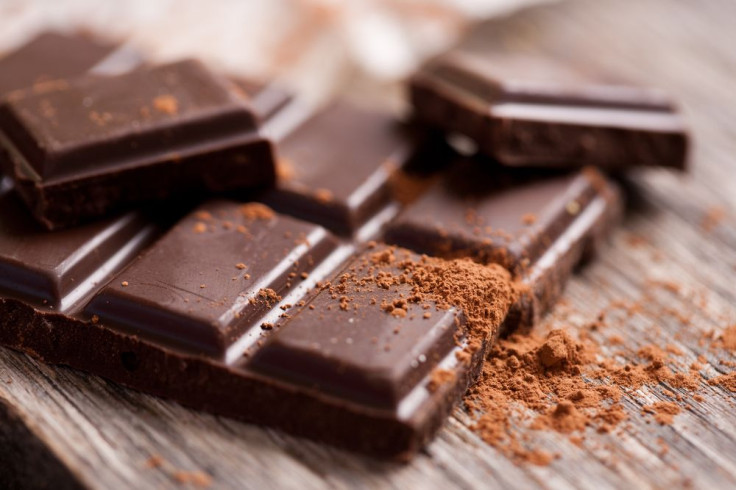Chocolate With Health Benefits? 'Pulp Preconditioning' Could Make Chocolate Tastier And More Nutritious

Chocolate-lovers, rejoice! Pretty soon we’ll all be able to indulge our sweet tooth without wasting a cheat day. A recent study presented at the 249th National Meeting & Exposition of the American Chemical Society (ACS) has revealed a new process for manufacturing chocolate that would not only improve its taste, but would also help retain some of the healthy antioxidants that are lost during the roasting process.
Antioxidant compounds found in dark chocolate, also known as polyphenols, are often praised for their ability to reduce blood pressure by allowing blood vessels to dilate. Polyphenols are why dark chocolate and red wine are regarded as romantic indulgences and heart healthy dieting options.
"We decided to add a pod-storage step before the beans were even fermented to see whether that would have an effect on the polyphenol content," Dr. Emmanuel Ohene Afoakwa, from University of Ghana, said in a statement. "This is not traditionally done, and this is what makes our research fundamentally different. It's also not known how roasting affects polyphenol content."
Afoakwa and his colleagues developed their new technique, dubbed “pulp preconditioning,” using 300 pods that were divided into four groups and either stored for three days, seven days, 10 days, or no days at all before processing. Traditionally, pods are cut down from cocoa trees and split open to remove the white or purple cocoa beans. Baskets lined with bananas are used to ferment the cocoa beans for a few days before they are set out to dry in the sun.
Chocolate’s delicious flavor comes out during this roasting process. However, some of the healthy polyphenols are also lost during this step. In an effort to retain as much of the polyphenols and flavor as possible, the research team fermented and dried the cocoa beans as each storage period passed. They found that seven-day storage yielded the highest antioxidant activity. The next step involved roasting pods from each group at the same temperature for different times to determine the effects of roasting.
Cocoa beans are usually roasted for 10 to 20 minutes at 248 to 266 degrees Fahrenheit. Afoakwa and his team decided to slow down this step by roasting them for 45 minutes at 242 degrees Fahrenheit, which significantly increased the antioxidant activity and retained more polyphenols. Afoakwa explained that his team’s “pulp preconditioning” process allows the sweet pulp around the beans inside the pods to biochemically and physically alter the beans prior to fermentation.
"This aided the fermentation processes and enhanced antioxidant capacity of the beans, as well as the flavor," Afoakwa added.
Source: Afoakwa E, et al. More flavorful, healthful chocolate could be on its way. 249th National Meeting & Exposition of the American Chemical Society (ACS). 2015.
Published by Medicaldaily.com



























